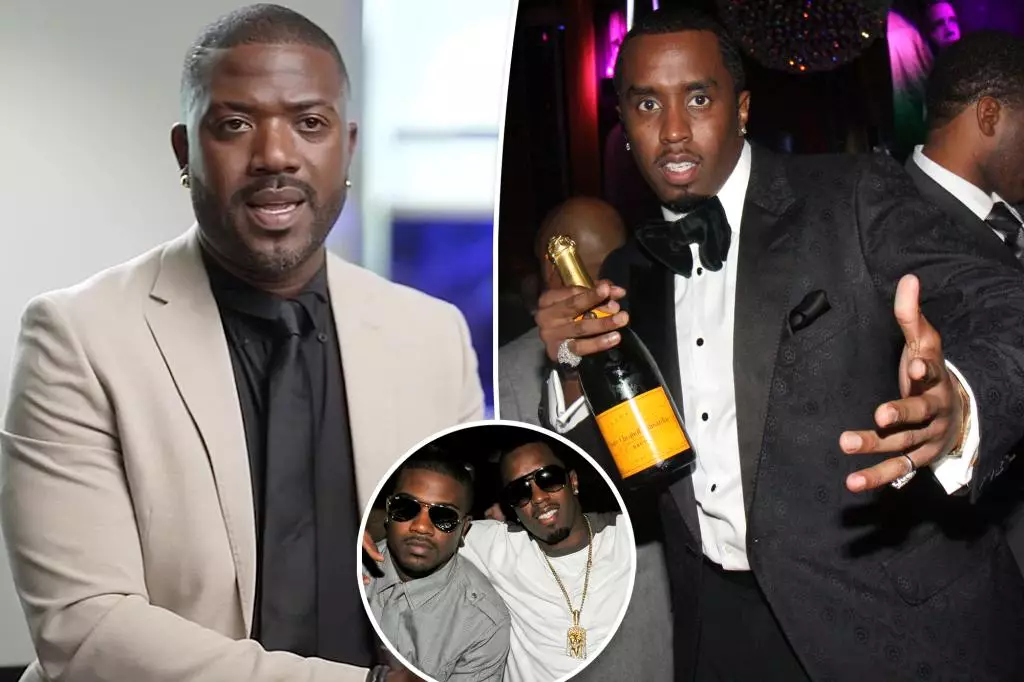In a startling revelation from the entertainment world, Ray J recently stirred the pot during an interview with TMZ’s Harvey Levin. The singer, known for his candid demeanor, alluded to widespread secrecy regarding Sean “Diddy” Combs’ legal challenges, remarking that many high-profile personalities are playing the victim to remain under the radar. This narrative raises questions about the murky interface of fame, power, and the lengths to which individuals will go to maintain their reputation—and what implications this has for those embroiled in serious allegations.
Ray J’s comments came during a discussion about the ongoing legal troubles faced by Diddy, who is up against serious charges, including sex trafficking and racketeering. The gravity of these claims is substantial, not just for Diddy but for the entire entertainment industry, hinting at a systemic issue where powerful figures might manipulate narratives to their advantage. Ray J suggested that financial incentives often play a crucial role in keeping such uncomfortable truths under wraps, effectively asking potential whistleblowers to stay silent in exchange for monetary compensation. This phenomenon, often referred to as ‘catch and kill’, alludes to a culture of complicity that protects influential figures at the cost of transparency and accountability.
During the interview, Ray J stated that numerous individuals with past connections to Diddy have reached out to him, seeking a platform for their potentially damaging stories. This underscores a critical point about trust in the entertainment industry; there is a palpable fear among many that sharing their experiences could result in retaliation or professional ostracism. Levin’s probing question about whether these individuals sought to keep their affiliations with Diddy concealed points to a wider issue of fear that permeates the culture of celebrity. The fear of repercussions stifles voices that could otherwise shine a light on misconduct, illuminating the darker underbelly of Hollywood.
As legal proceedings unfold, Diddy’s situation is further complicated by the pronounced involvement of attorney Tony Buzbee, who represents multiple alleged victims. The specter of “enablers” is increasingly becoming a talking point, with Buzbee hinting at a list of names that could shock the public. Such statements raise the stakes in an already volatile situation. Public relations and legal defenses become intertwined in an attempt to manage Diddy’s damaged reputation, all while navigating the potential fallout from naming names of those who may have actively covered up or ignored allegations.
Interestingly, while the legal crisis mounts, familial tensions have begun to surface; reports surfaced about a fight between Ray J and Diddy’s sons at a Halloween party. This encapsulates the chaos surrounding the situation, suggesting that the once-glamorous world of celebrity can quickly become fraught with personal conflict. Family members find themselves caught in a storm of controversy, facing pressures and anxieties as they witness their father’s public downfall. The complex emotional dynamics associated with fame are laid bare when private disputes spill into public view, blurring the lines between personal and public life.
Concluding Thoughts on a Culture of Silence
Ray J’s insistence that he may have “said too much” encapsulates the fraught nature of discussing celebrity misconduct; fear of professional and social backlash perpetuates a culture of silence among potential whistleblowers. As the narrative surrounding Diddy continues to unfold, it serves as a stark reminder of the intricate interplay between fame, power, and moral responsibility. Collectively, the revelations pose significant ethical questions: How much longer will the entertainment industry tolerate a culture where truth remains buried? And what does this mean for those who dare to speak out? As the curtain draws on this chapter, it remains to be seen whether the truth will ultimately prevail, or if the powerful will continue to operate in the shadows, dictating the narrative on their own terms.

